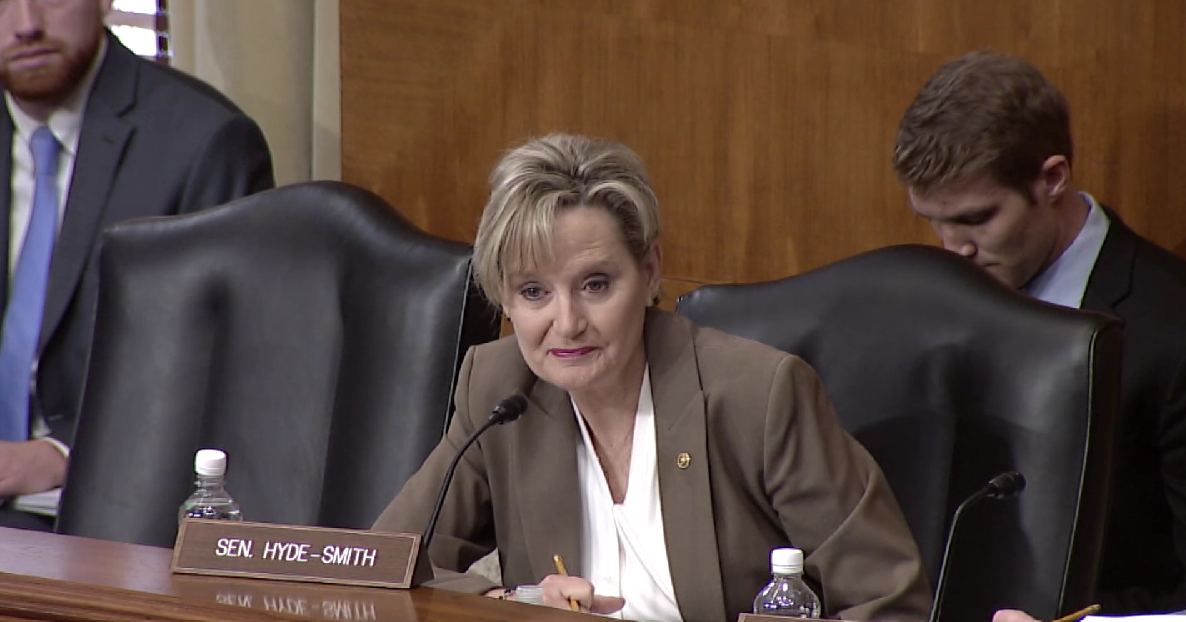HYDE-SMITH QUESTIONS U.S. RELIANCE ON RUSSIAN URANIUM TO FUEL NUCLEAR POWER
Senate Energy Committee Examines U.S. Nuclear Fuel Cycle Challenges

VIDEO: Senator Hyde-Smith Question on Sanctioning Russian Uranium Imports.
WASHINGTON, D.C. – U.S. Senator Cindy Hyde-Smith (R-Miss.) on Thursday advocated ending uranium imports from Russia, which remains one of the few Russian products not sanctioned by the United States following Vladimir Putin’s 2023 invasion of Ukraine.
The Senate Energy and Natural Resources Committee conducted a hearing to examine the U.S. nuclear fuel cycle, which currently relies on foreign sources of enriched uranium to support the needs of today’s nuclear power reactor fleet, advanced reactors, research reactors, and medical isotope production facilities.
“Throughout the past decade, nuclear energy has proven to be one of the lowest-cost and most reliable energy sources utilized by the U.S. electric grid, and the war in Ukraine has made it even more urgent that we reduce our dependence on Russia’s enriched uranium,” said Hyde-Smith, who questioned the Biden administration’s apparent hesitancy to sanction Russian uranium.
“I am of the mind that it’s critical we cut off all Russian imports, including uranium. The U.S. should strengthen its domestic nuclear fuel supply chain, and again establish itself as a global energy leader,” the Senator said. “What is stopping the U.S. from eliminating its reliance on Russia in the nuclear energy area?”
Kathryn Huff, the U.S. Department of Energy Assistant Secretary for Nuclear Energy, said the U.S. response to stopping Russian uranium imports must be nuanced in order to ensure continued operation of U.S. nuclear plants without fuel cycle disruptions.
“It takes a while, a few years, to stand up new fuel cycle capacity to replace the capacity that we currently import from Russia, and we have only a finite amount of inventory available inside this country. So, we want to make sure that the timing is appropriate such that we have incentivized the expansion of that fuel cycle capacity at the same time as pairing it with import restrictions,” Huff said.
The United States no longer has the sufficient capacity to produce enriched uranium, and trusted alternative sources are insufficient to replace current U.S. imports from Russia, the largest global enricher of uranium.
The United States currently imports more than 90 percent of the uranium needed for our reactor fleet, which provides nearly 20 percent of the electricity produced for the power grid and more than half of the carbon-free electricity generated in the country—more than solar, wind, hydro, and geothermal combined.
According to the Energy Information Agency, owner and operators of U.S. nuclear power reactors purchased the equivalent of roughly 47 million pounds of uranium in 2021, 35 percent from Kazakhstan, 15 percent from Canada, and 14 percent from both Australia and Russia.
Mississippi is home to the 1,443-megawatt Grand Gulf Nuclear Power Station, one of the largest reactors in the United States in terms of generating power.
###
